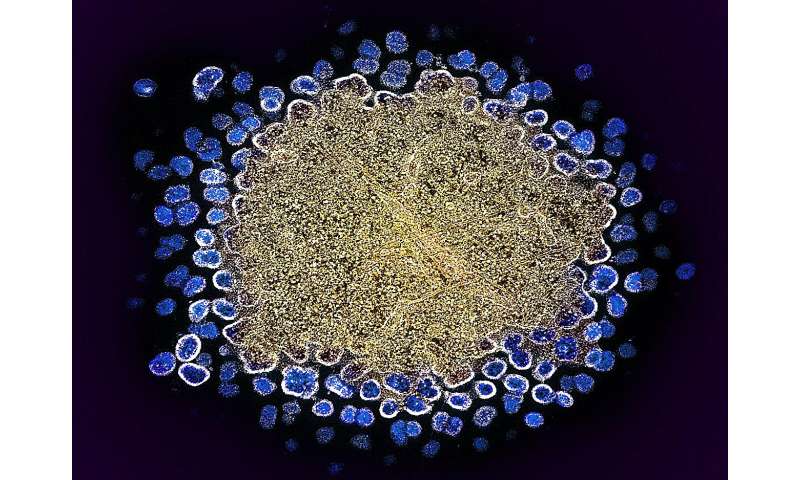US clinical trials begin for twice-yearly HIV prevention injection

Two clinical trials have launched to examine a novel long-acting form of HIV pre-exposure prophylaxis (PrEP) in cisgender women and people who inject drugs. The mid-stage studies will assess the safety, acceptability, and pharmacokinetics (how a drug moves through the body) of lenacapavir, an antiretroviral drug administered by injection every six months.
The studies are sponsored by Gilead Sciences, Inc., and implemented through the HIV Prevention Trails Network (HPTN). The HPTN is supported by grants from the National Institutes of Health's (NIH) National Institute of Allergy and Infectious Diseases (NIAID), with scientific collaboration on this study and others from the National Institute on Drug Abuse (NIDA).
Lenacapavir is already approved by the Food and Drug Administration for HIV treatment, in combination with other antiretroviral therapy, of heavily treatment-experienced individuals, whose HIV infections cannot be successfully treated with other available treatments due to resistance, intolerance, or safety considerations with other drugs and developed multidrug resistance.
Lenacapavir is the first of a class of drugs called capsid inhibitors to be FDA-approved for treating HIV infection. It is the first long-acting injectable to be offered with administration just once every six months.
Cisgender women—people who self-identify as female and were assigned female sex at birth—and people who inject drugs accounted for 18% and 7% of new HIV diagnoses in the United States in 2021, respectively.
Both population groups have been underrepresented in HIV clinical studies, as have transgender people, pregnant people and U.S. communities of color. Both trials complement ongoing large efficacy studies and are intended to provide insights on how these two priority populations experience lenacapavir-based HIV PrEP.
The studies will take place at HPTN sites in the United States and enroll people who might benefit from taking PrEP. The first trial will enroll cisgender women, with a focus on making enrollment accessible to women who self-identify as Black and/or Latina.
The second trial will enroll a diverse group of people who inject drugs. In both studies, participants will be randomly assigned to receive either injectable lenacapavir or an FDA-approved PrEP formulation consisting of oral tenofovir disoproxil fumarate and emtricitabine.
Participants' health will be monitored closely throughout the study. Participants will provide laboratory samples and give qualitative feedback on their experience taking each form of PrEP.
The studies will add important clinical data to a global manufacturer-led clinical development program for lenacapavir as HIV PrEP. NIH is supporting the implementation of these two studies through its clinical trials networks to help ensure the meaningful inclusion of diverse and representative populations in clinical research, so that everyone can contribute to scientific progress and benefit from its applications.
For more information about these trials, please visit ClinicalTrials.gov study identifiers NCT06101329 and NCT06101342.
Provided by National Institutes of Health